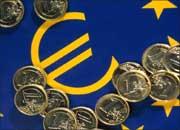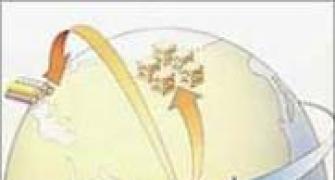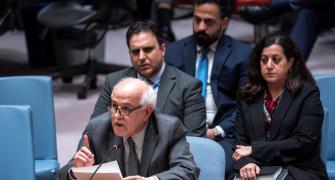Germany's unilateral ban on some kinds of short selling of financial products surprised its European Union partners on Wednesday, and financial markets retaliated by selling off global shares and dumping the euro to a four-year low against the dollar.
 The financial market interpreted the decision by Germany's financial regulator BaFin to ban the country's traders from naked short-selling certain European bonds and stocks as a "desperate measure" to shore up the euro.
The financial market interpreted the decision by Germany's financial regulator BaFin to ban the country's traders from naked short-selling certain European bonds and stocks as a "desperate measure" to shore up the euro.
Consequently, investors rushed to get rid of their shares and the euro, resulting in renewed market turmoil across Asia and Europe.
The euro fell to 1.214 against the dollar, the lowest since April, 2006, but later recovered slightly to close at $1.236.
All leading European share indices closed lower after a day of nervous trading. In London, FTSE closed lower by 2.81 per cent, CAC-40 in Paris by 2.92 per cent, DAX in Frankfurt by 2.72 per cent and IBEX in Madrid by 2.61 per cent.
All key share indices in Asia also dropped.
Germany had clamped down on short-selling of covered sovereign bonds issued by Eurozone countries, credit insurances known as credit default swaps on those bonds and shares of the country's 10 largest financial institutions, including Deutsche Bank and Commerzbank. The ban is effective until March 31, 2011.
Naked short selling is the practice of selling shares without actually owning or borrowing them, with the intention of buying them back later at a lower price.
European governments and politicians have, in recent months, blamed short-selling for "jeopardising the stability of the financial system" by involving in highly speculative trade.
Some EU officials blamed a 'wolf pack' of short traders and hedge funds for driving down the prices of Greek government bonds and shares, and threatening other heavily indebted nations in the Eurozone.
The German government's decision to ban naked short selling was announced shortly after finance ministers of the European Union reached a broad agreement on the need to tighten control over hedge funds and private equity funds at a meeting in Brussels on Tuesday.
BaFin head Jochen Sanio rejected speculations that the move by his organisation was intended to protect German banks from possible insolvency.
"I assure you that the German banking system is solvent," he told the country's parliamentarians at a hearing in the Bundestag.
Sanio said that the ban intends to remedy abuse of trade, not protect insolvent German banks. Banks are finding themselves in grave danger because their share prices have been affected by massive short selling, he added.
Moreover, the euro has also been attacked, Sanio said. The European Commission and EU member nations reacted with bewilderment to the ban on short selling and voiced complaints over the lack of consultations prior to Tuesday night's announcement.
Commission officials said they were surprised that German Finance Minister Wolfgang Schaeuble had not even dropped a hint about the government's plan when he attended a meeting of EU finance ministers on Tuesday.
Voicing her disapproval, French Finance Minister Christine Lagarde said that "anybody in such a situation should seek the opinion of other member nations". France has no intention of following Germany's lead, she added.
The Dutch government also echoed a similar sentiment. EU's internal market commissioner Michel Barnier said that though he could understand Germany's concern over the consequences of risky transactions, "it is important for all EU nations to act together".
The issue must be discussed by finance ministers of the 16 euro zone nations at their next meeting in Brussels on Friday, Barnier said.
Stating that it is necessary to have a set of European rules to prevent "regulatory arbitrariness" and "fragmentation", he said, "These measures could have been more efficient if they were coordinated on the European level."
Barnier pointed out that a working group is currently preparing its recommendations on regulating short selling and it is expected to present its report in the coming weeks.
The commission will draw up its proposals based on recommendations made by the working group.
European Commission President Jose Manuel Barroso said that the member nations of the EU were unanimous in the view that the misuse of short-selling must be tackled.
However, the Spanish government expressed its support for Germany's unilateral move. "We stand fully behind the decision," Spanish Prime Minister Jose Luis Rodriguez Zapatero said.
Financial regulators in Austria and Belgium also welcomed the ban, and said they were considering similar measures. Defending her government's decision, Chancellor of Germany Angela Dorothea Merkel defended her government's decision.
"Germany will continue to take independent action in areas where its unilateral action causes no harm to its partners," Ms Merkel said during a parliamentary debate on the euro 750 billion (nearly a trillion dollars) EU-IMF financial bailout package for the Eurozone.
She said that the ban will remain in force until the EU finds a way to combat the misuse of the provision.






